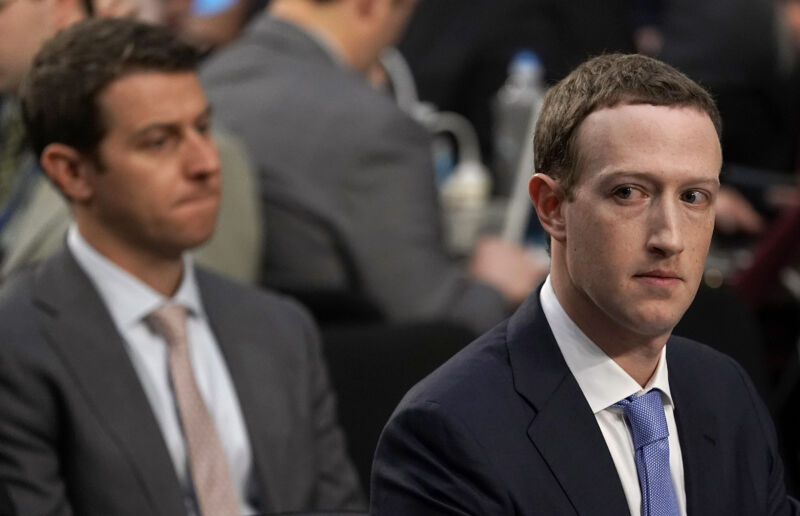
Enlarge / Facebook CEO Mark Zuckerberg testifies before a combined Senate Judiciary and Commerce committee hearing in the Hart Senate Office Building on Capitol Hill April 10, 2018 in Washington, DC. Zuckerberg, 33, was called to testify after it was reported that millions of Facebook users had their personal information harvested by Cambridge Analytica. (credit: Alex Wong/Getty Images)
In a newly unsealed lawsuit, Facebook shareholders allege that the company intentionally overpaid a $5 billion Federal Trade Commission fine to protect CEO Mark Zuckerberg from further government scrutiny.
“Zuckerberg, Sandberg, and other Facebook directors agreed to authorize a multi-billion settlement with the FTC as an express quid pro quo to protect Zuckerberg from being named in the FTC’s complaint, made subject to personal liability, or even required to sit for a deposition,” the lawsuit says (emphasis in the original). An early draft of the order obtained by The Washington Post through the Freedom of Information Act shows that the commission was considering holding Zuckerberg responsible.
The FTC levied the fine in July 2019 in the wake of the Cambridge Analytica scandal, which saw political operatives harvesting the personal data of 50 million Facebook users without their consent. (The lawsuit says only 0.31 percent of the affected users consented.) The fine (which was a record for privacy-related penalties) was 50 times larger than the maximum prescribed by a previous FTC consent decree, the lawsuit alleges. It was also well in excess of the previous record fine of $168 million.




